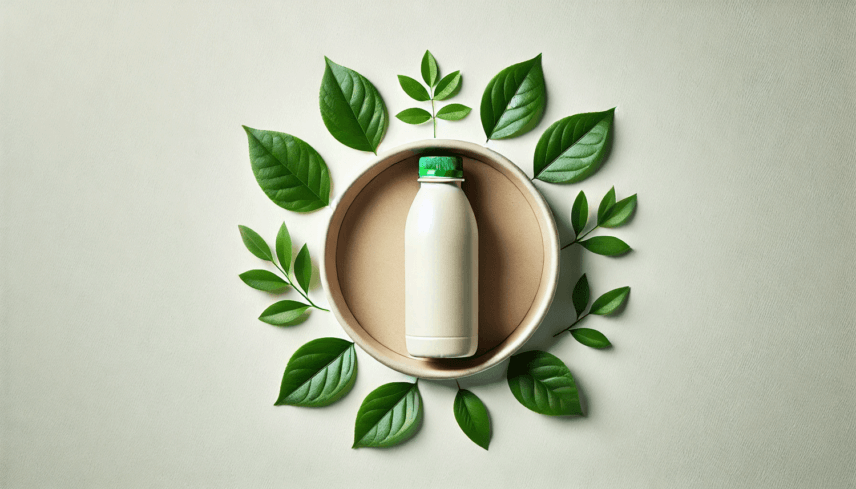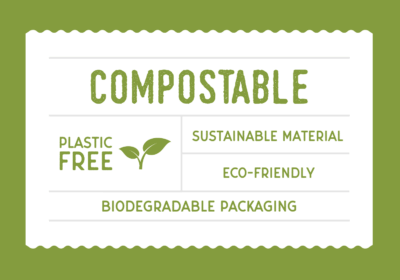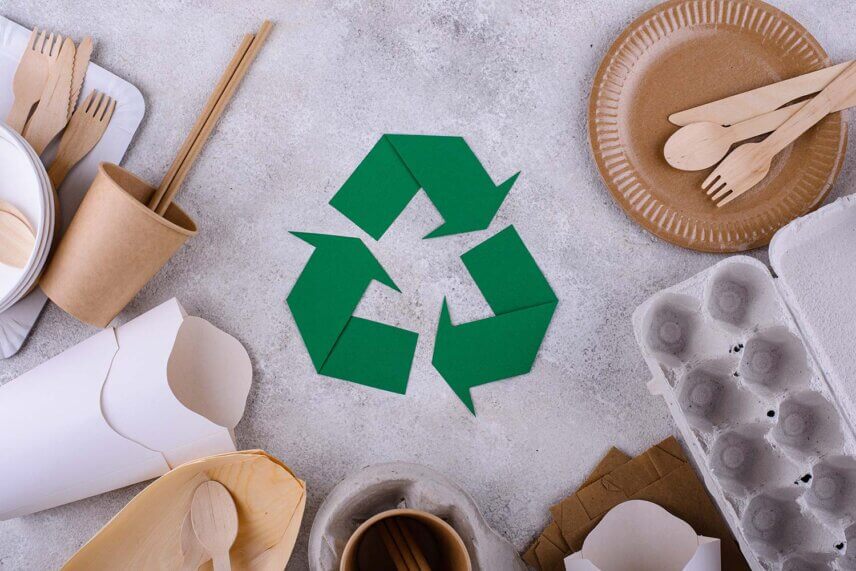
Sustainability concerns have altered global manufacturing standards, raising the stakes for green innovation and environmentally sound production practices. As public planetary awareness grows, consumer spending increasingly favors green initiatives, leading makers and marketers to embrace sustainable methods and messaging. To that end, contract packagers are tasked with reducing the environmental impact of consumer packaged goods.
Among the forward-looking solutions for managing packaging waste and boosting sustainability, plant-based packaging materials have emerged as important features in the move toward greater eco-consciousness.
Environmental Impacts of Plastic Packaging
Plastic packaging has experienced a long run, dominating the consumer packaging marketplace. Convenient, effective plastic packages once represented the cutting edge of the packaging industry, providing go-to packing solutions for diverse products.
However, with the emergence of new technology and lasting shifts in consumer preferences, the downsides of petroleum-based packaging have eclipsed its benefits, in many cases, leading to greener plant-based packaging solutions.
 One clear problem with plastic packaging is the pollution created by petroleum-based wraps and containers. Although some plastic packaging is recyclable, many traditional, recognizable plastic packages create waste directly destined for landfills, accounting for millions of tons of annual food packaging waste. Plastic materials are stable, so they don’t readily decompose, particularly when buried without exposure to sunlight.
One clear problem with plastic packaging is the pollution created by petroleum-based wraps and containers. Although some plastic packaging is recyclable, many traditional, recognizable plastic packages create waste directly destined for landfills, accounting for millions of tons of annual food packaging waste. Plastic materials are stable, so they don’t readily decompose, particularly when buried without exposure to sunlight.
In addition to contributing solid waste to the environment, plastic packaging is also known to release harmful chemicals into the air. According to the United States Environmental Protection Agency’s (EPA) Toxics Release Inventory Program (TRI), plastics are responsible for releasing chemicals such as trichloroethane, acetone, benzene, and styrene, among others.
The EPA initiative tracking toxic releases helps companies, communities, and government agencies make informed plastic usage and disposal decisions, including contract food packaging strategies. The manufacturing and refining processes used during plastic production release further harmful emissions, adding to the negative impact of some plastic packaging solutions.
Plastics’ negative health effects are a genuine cause for concern, contributing to the rise of plant-based packaging. In some cases, toxic additives and problem chemicals can migrate from fossil fuel plastics into packaged food products, potentially exposing consumers to unhealthy agents. With multiple downsides diminishing the appeal of some traditional packaging methods, plant-based materials technology has given rise to advanced packaging alternatives that rely less on petroleum polymers and paper-based materials.
Shifting Attitudes and Emerging Technology Prompt Plant-based Innovation
Both public and environmental intolerance for unsustainable materials have surpassed action stage, fueling demand for sustainable plastic alternatives. As much as 40-percent of global plastic use has been attributed to packaging, prompting action from materials innovators and packaging professionals. Responding to consumers’ calls for sustainable packaging solutions, stakeholders have turned to plant-based packaging, yielding workable alternatives to traditional petroleum-based packages.
Bioplastics and plant-based versions share some of the same benefits offered by traditional plastic packaging, which is relatively inexpensive, effective, and easily produced. Given the well-documented downsides of plastics, plant-based alternatives represent a sea change in the contract packaging industry.
Bioplastics are made from renewable resources rather than the fossil fuels behind traditional plastics. Innovative plant-based solutions are versatile, like their forebears, yet can often be composted. Rather than petroleum, the basis for bioplastics includes vegetable oils, corn starches, sugar cane, algae, and other sustainable resources.
Plastics Derived From Plants
The science distinguishing plant-based, bio-based, and traditional plastics involves the source of the molecules comprising the material. Traditionally derived from fossil fuels, familiar plastics rely on petroleum-based molecules. In contrast, plant-based plastic is made from plant-derived molecules. Both types of plastic are comprised of polymers, but the chains of molecules come from different sources.
Tracking the demand for renewable solutions, plant-based packaging utilizes everything from agricultural waste to seaweed. However, despite their association with sustainable resources, not all of the materials are fully biodegradable. In order to degrade, substances must first be able to disintegrate into smaller pieces before being ingested by microorganisms. Not all plant-based packaging meets these criteria, but many options rise to the standard, yielding substantial benefits compared to their petroleum-based counterparts. While plant-based plastics may help circumvent non-renewable fossil fuels, the innovation doesn’t offer a catch-all solution for plastic pollution. Because some plant-sourced polymers don’t degrade or require precise conditions to biodegrade, end-of-life packaging challenges remain, providing further opportunities for green packaging innovation.
While plant-based plastics may help circumvent non-renewable fossil fuels, the innovation doesn’t offer a catch-all solution for plastic pollution. Because some plant-sourced polymers don’t degrade or require precise conditions to biodegrade, end-of-life packaging challenges remain, providing further opportunities for green packaging innovation.
Undoubtedly, biodegradable and compostable packaging materials appeal to green consumers, but recent studies highlight problems with compostable plastic claims.
Many innovative materials are designated industrial compostable only, and plastics promoted as home compostable don’t always perform well. One look at home composting showed 60-percent of home compostables don’t fully decompose, creating soil pollution
Packaging Dominates Bioplastics and Plant-based Material Applications
According to Innova Marketing Insights, food and beverage packaging claiming to be biodegradable or compostable has tripled since 2018, with more than half the claims coming from tea, coffee, and confectionary producers.
Consumers, in-turn, have a positive view of paper and bioplastic materials; only six to seven-percent of shoppers view paper and bioplastics as unsustainable. Supported by consumers’ growing commitment to environmental concerns, bioplastics production is expected to continue growing steadily, forecast to nearly triple by 2027.
As more marketers directly target eco-conscious buyers, packaging plays a primary role in the future of bioplastics. Although greener materials are in demand across the board, packaging represents as much as 48% of the bioplastics industry by weight, driving growth and innovation of plant-based alternatives.
Forward-looking CPGs and co-packers continue advancing the science behind plant-based packaging solutions, devising drop-in solutions that directly replace polluting plastics. One such manufacturer claims end-of-life “bio-assimilation,” creating food for microorganisms that fertilize soil. The producer, Xampla, mirrors public sentiment with their mission to cut greenhouse gases from plastic production, efficiently use plant and agricultural waste, and eliminate plastic pollution. The company’s versatile solutions offer some of the same benefits as traditional petroleum-based plastics, enabling contract packagers to substitute plant-based solutions, without retooling.
As green packaging technology catches up with buyers’ preference for green alternatives, diverse brands have committed to reducing packaging waste. Unilever, PepsiCo, Ben and Jerry’s, and Coca-Cola are only a few of the CPG giants that have established timelines for phasing out environmentally unsound production and packaging strategies.
Bioplastics and plant-based packaging materials represent a growing segment of the ongoing green revolution. As consumers increasingly spend with sustainability in mind, greener packaging alternatives have moved to the mainstream, creating new ways for turnkey contract packaging companies to excel.
At Assemblies Unlimited, our innovation and resourcefulness can meet your packaging project needs. Whether you require a compostable packaging solution or other unique contract packaging requirements, please request a quote, and a sales specialist will reach out to discuss your project.
